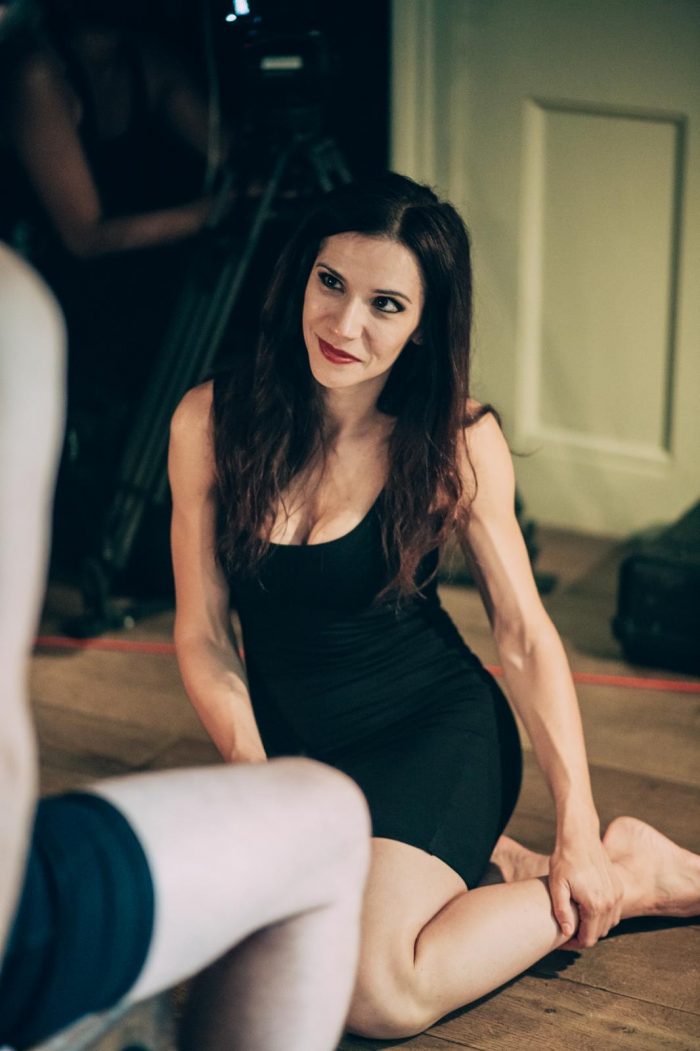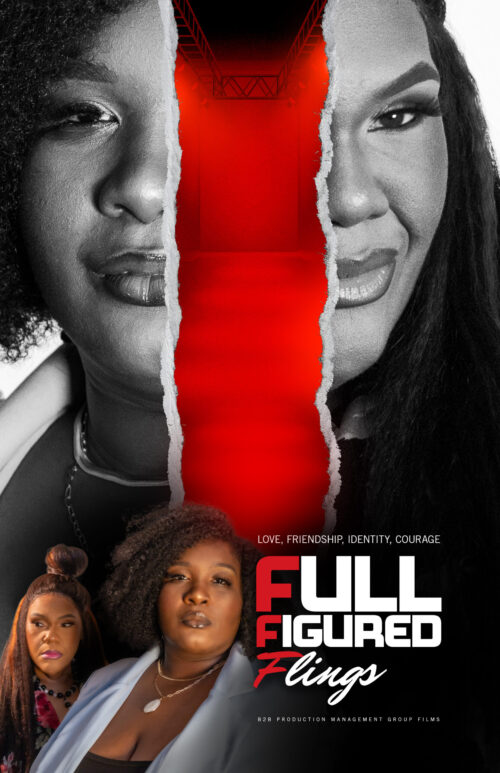We Speak Actors
Billie Vee stars in her self-penned film ‘Sparrow’s Call’, premiering at the London Independent Film Festival


Greek-British actress Billie Vee has written – and stars in – the psychological thriller ‘Sparrow’s Call’, which is showing at London’s Genesis Cinema on Sunday 21st April. Billie is thrilled that the film, which is directed by Tim Kent, has been officially selected for the London Independent Film Festival as it explores the challenges of being a migrant in this country, a topic that’s close to her heart. Here she talks about growing up in the birthplace of theatre, why she loves writing, and filming her movie during the Covid lockdown.
How did you get started as an actress?
“I was born in Athens, Greece, the birthplace of theatre, and I couldn’t even remotely imagine that years later I would be making films in London. From a very young age I remember being in awe of actors on stage. However it was when my parents took me to the cinema for the first time that I felt completely mesmerised. That’s when I knew I wanted to be an actor and that my biggest dream was to star in an English-language feature film.”
Where did you train?
“I trained at the Greek Art Theatre Karolos Koun and I received my degree in theatre studies from the University of Athens. After graduating, I started working and gaining experience that spanned from TV and film roles and TV presenting to performing on stage, including the ancient open theatre Odeon of Herodes Atticus. Wanting to expand my artistic horizons and learn how to act in English, I moved to London, where I immersed myself into a journey of continuous self-improvement and development of my craft.”
You wrote the screenplay for ‘Sparrow’s Call’ – how did that come about?
“While continuing my career as an actor in London, I felt the urge to pursue my childhood dream of starring in a feature film. That’s how writing came to my life and I started creating my own work. ‘Sparrow’s Call’ (directed by Tim Kent and produced by Alessio Bergamo) is my first feature film as a writer, after having scripted several award-winning short films and a web series.
“When I write something, it comes from inside me, as a need to express something deeper and then it transforms into a work of fiction to entertain an audience, and make them think and feel.”
Where did you get the inspiration for ‘Sparrow’s Call’?
“‘Sparrow’s Call’ is inspired by my personal journey as a generic migrant in London. Being a foreign actor, I was constantly labelled as ‘Greek’ or ‘exotic”, so I took those labels and moulded them into a fictitious character, Val. The only thing that happened for real and that’s depicted in the film is an incident with a sparrow that took place when I was a child in my father’s village. That’s how I came up with the title of the film.”
What’s the plot of the film?
‘Sparrow’s Call’ follows the story of Mike, a successful philosophy lecturer and a family man who is captivated by Val, an exotic dancer, after saving her from danger. When they throw themselves into a rollercoaster of physical and intellectual connection, Mike fears his whole world is about to fall apart and must face the consequences of his affair.I play Val, who’s a migrant from Greece, but her nationality remains obscure throughout the film. She comes from a low socio-economic background, working in the sex industry as an exotic dancer. She is hardened by life and wants to escape from her environment. She lives with her grandmother who is severely paralysed, but whose mind works perfectly well. By a twist of fate, Val meets Mike and falls in love with him, but also sees him as an opportunity to get out of what seems to be a hopeless situation.”
What was it like working on the film set?
“Working on the set of ‘Sparrow’s Call’ was an absolute blast from start to finish. I had the chance to play opposite David Bark-Jones, who brilliantly portrays the character of Mike, and also to work with the wonderful Valerie Colgan, who plays my grandma.”
“All the cast and crew were truly committed to the project, the environment felt safe and the whole set was oozing positive energy, something that was much-needed considering the fact that we were filming during the Covid lockdown.”
Where can we see the film?
“‘Sparrow’s Call has been officially selected for the London Independent Film Festival and will be premiering on 21 April at the Genesis Cinema. It’s highly recommended for those who love twisted psychological thrillers with an existential touch and subtle social commentary.”
Photo credit: Ryan O’Donoghue
We Speak Actors
Full-Figured Flings Teaser Nears 14K Views – Director of Photography Offers Special Father’s Day Release

Back 2 the Basics Production Management Group is proud to announce the official teaser premiere for FFF: Full-Figured Flings, a bold and unapologetic new film celebrating full-figured women and challenging the norms of beauty in Hollywood. Clocking in at just 46 seconds, the teaser doesn’t waste a moment, delivering a powerful visual and emotional punch that sets the tone for a project rooted in body positivity, size inclusivity, and cultural truth.
Premiering ahead of the 20th anniversary of Phat Girlz (2006), FFF serves as both homage and evolution. The film expands the conversation around colorism, sizeism, and shapeism, spotlighting women who have often been cast aside, sidelined, or silenced.

“This teaser is more than a preview—it’s a declaration,” said Lillie Mae Jones, creator and producer. “FFF is our love letter to the women who’ve never been centered but have always been essential. We’re not just telling stories—we’re shifting the lens.”
FFF: Full-Figured Flings is currently in development as a non-union independent production, with plans to release in 2026. The film invites audiences and allies to follow, support, and amplify the message through community engagement, open casting calls, and creative collaborations—including the launch of a nationwide call for a “Big Girl Anthem” to serve as the film’s official theme song.


Accept the Challenge…
The buzz is building fast around the highly anticipated full-figured fashion experience FFF, and now there’s a challenge on the table that fans won’t want to miss.
After racking up 11,000 views in less than 10 days, the official teaser video for FFF on YouTube is quickly gaining momentum. And now, the film’s Director of Photography, Dominique Perry, has thrown down a bold offer:
“If we hit 20,000 views before Saturday, June 14th, I’ll drop an exclusive second teaser on Father’s Day.”
This is more than a film—it’s a movement. FFF is a high-fashion, high-impact visual celebration of full-figured women taking a stand for representation, inclusion, and power on and off the runway.
Here’s how you can help make it happen: Watch the teaser now on YouTube. Like, comment, and subscribe. Share it with your community and post why YOU stand in solidarity with full-figured women
Watch here for a taste of the boldness, beauty, and energy
-

 We Speak Soccer1 week ago
We Speak Soccer1 week agoNo Entry Allowed: How Austin Fortner Is Becoming a Standout Keeper with Confidence and Control
-

 We Speak Soccer5 days ago
We Speak Soccer5 days agoFrom Small Steps to Big Goals: How Alianna-Reyne Basa Became a Fearless Striker with a Champion’s Heart
-

 We Speak Soccer6 days ago
We Speak Soccer6 days agoBrylee Tagle: Crafting Excellence on the Soccer Field with Vision, Confidence, and a Passion for the Game
-

 We Speak Music6 days ago
We Speak Music6 days agoSinger/Songwriter Aro Rose To Release Highly Anticipated New Single “Live Without You” On June 29th, 2025





















